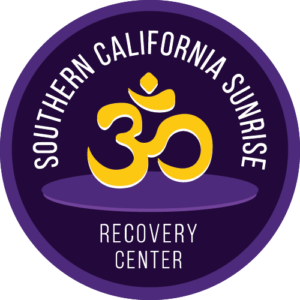Fentanyl addiction represents a rapidly escalating crisis, profoundly impacting a vast number of individuals and their families. In 2021 alone, approximately 539,000 individuals aged 12 or older misused prescription fentanyl, a statistic that underscores the urgency and severity of this issue. At Tres Vistas Recovery, we are acutely aware of the challenges posed by this epidemic and are dedicated to offering compassionate and specialized care in response.
Located in the serene setting of Orange County, our facility provides comprehensive PHP (Partial Hospitalization Program) and IOP (Intensive Outpatient Program) services. These programs are meticulously crafted to address the diverse needs of those battling fentanyl addiction. Our approach is holistic, combining thorough medical care with emotional and psychological support, which is crucial for a successful recovery journey.
In addition to fentanyl, we also address other substance dependencies, including common misconceptions, such as whether is Xanax an opioid. This understanding is essential in providing comprehensive care for various addictions, enhancing our ability to support a broader range of individuals seeking help.
Understanding the magnitude of fentanyl misuse highlights the importance of accessible and effective opioid addiction treatment options. At Tres Vistas Recovery, we are committed to playing a pivotal role in addressing this public health crisis by offering top-tier treatment and support to those in need. Our goal is to provide a path to recovery that is both compassionate and effective, helping individuals overcome the challenges of fentanyl addiction and embrace a healthier, substance-free life.
The Severity of Fentanyl Addiction
Fentanyl stands out as an opioid of particular concern due to its extraordinary potency, estimated to be 50 to 100 times stronger than morphine. This high potency significantly elevates the risk of addiction and overdose. The risk is compounded by the fact that fentanyl can be found mixed with other drugs, often without the user’s knowledge. The onset of addiction can be rapid, and the withdrawal symptoms can be severe. Detoxification from fentanyl, therefore, is a delicate and critical process that requires a well-structured and medically supervised approach. At Tres Vistas Recovery, we understand these challenges intimately. Our treatment programs are designed to address the physical dependency on fentanyl with the utmost care, while also providing comprehensive support to address the psychological aspects of addiction. We believe that successful recovery from fentanyl addiction necessitates a blend of medical expertise, psychological counseling, and personalized care, all of which are fundamental to our treatment philosophy.
Detoxification from Fentanyl
The detoxification process from fentanyl is an essential and challenging step in the journey towards recovery. This critical phase involves managing the acute physical symptoms of withdrawal that manifest when an individual ceases using the drug. Given fentanyl’s high potency, this detox process can be especially demanding. Questions such as “how long does it take to detox from fentanyl?” are common among those undergoing treatment, given that fentanyl is a potent opioid and its withdrawal timeline can be complex, intersecting with concerns about opioid withdrawal insomnia, a prevalent issue during this phase.
The intensity and duration of withdrawal symptoms can vary significantly, influenced by factors such as the individual’s level of dependency and overall health. Typical withdrawal symptoms from fentanyl include severe pain, nausea, insomnia, restlessness, and intense cravings. Managing insomnia is particularly critical, as sleep disturbances can exacerbate other withdrawal symptoms and impact the overall recovery process. This highlights the necessity of a medically supervised detox program, like the one offered at Tres Vistas Recovery, where the focus is on managing these symptoms effectively.
Our detox program is meticulously designed to help patients navigate through the physical challenges of fentanyl withdrawal. The goal is to mitigate the grip of physical dependency, thus preparing individuals for the subsequent stages of their recovery journey. Understanding the withdrawal process, its duration, and the specific challenges it presents, such as insomnia, is crucial for patients and their families as they embark on the path to recovery. Through a combination of medication-assisted treatment, therapeutic support, and comprehensive care, we aim to alleviate discomfort and ensure patient safety, addressing both the immediate physical symptoms and the broader psychological impacts of withdrawal.
Factors Influencing Detox Duration
The detoxification process from fentanyl is highly individualized and is influenced by several critical factors. A pivotal aspect is the duration and intensity of fentanyl use. Individuals who have engaged in prolonged or high-dose fentanyl use typically face more extended and intense withdrawal symptoms. This is particularly significant considering that opioid withdrawal symptoms were reported by the vast majority (85%) of opioid-using people who inject drugs (PWID), making it one of the most common chronic health problems experienced by this population.
The individual’s overall health condition is another crucial determinant in the detox duration. Both physical and mental health aspects play a role here. Pre-existing health issues, especially those related to liver or kidney function, can significantly impact the body’s ability to metabolize and eliminate fentanyl, potentially prolonging the detox process.
The presence of co-occurring mental health disorders also exerts a substantial influence on the detox process. Conditions like depression, anxiety, or PTSD can make the management and treatment of fentanyl detoxification more complex. These mental health issues often necessitate concurrent treatment approaches to ensure a comprehensive and effective recovery process.
Additionally, the method of fentanyl consumption and the use of other substances in conjunction with fentanyl can alter the duration of detox. Intravenous use, such as injecting or snorting fentanyl, often leads to a more intense level of addiction as compared to other methods of consumption, thus affecting the timeline for detoxification.
The Detox Process at Tres Vistas Recovery
At Tres Vistas Recovery, we offer a comprehensive and personalized detox experience, catering to the unique needs of each individual. Our PHP and IOP programs are designed to provide rigorous medical supervision combined with compassionate emotional support throughout the detoxification process.
Our approach to detox involves a multi-faceted strategy:
- Medical Supervision: We employ a team of healthcare professionals who specialize in addiction treatment. They monitor patients round-the-clock, managing withdrawal symptoms through various medically-assisted treatments. This may include the use of medications like methadone or buprenorphine to alleviate withdrawal symptoms and curb cravings.
- Therapeutic Support: Understanding the psychological grip of fentanyl addiction, our programs include individual and group therapy sessions. These sessions are aimed at addressing the underlying psychological factors contributing to addiction, facilitated by experienced therapists.
- Holistic Care: We recognize the importance of holistic healing in addiction recovery. Our services include nutritional support, exercise programs, and mindfulness practices, all integral to the recovery process.
- Family Involvement: Recognizing the role of a supportive environment in recovery, we involve family members in the treatment process, offering counseling and education to help them understand addiction and recovery.
- Continuum of Care: Post-detox, we provide a seamless transition to further treatment modalities, including ongoing therapy and support groups, as part of our comprehensive recovery program.
Post-Detox Recovery and Treatment
The journey towards recovery from fentanyl addiction extends far beyond the initial detoxification phase. At Tres Vistas Recovery, we recognize that detox is merely the first step in a comprehensive, long-term treatment plan. Our post-detox recovery approach is multifaceted, focusing on sustainable healing and relapse prevention.
- Individualized Therapy: We offer a range of therapeutic modalities tailored to individual needs. This includes cognitive-behavioral therapy (CBT), dialectical behavior therapy (DBT), and trauma-informed therapy, among others. These therapies aim to address the root causes of addiction, equip patients with coping mechanisms, and facilitate emotional healing.
- Group Therapy and Peer Support: Group sessions provide a platform for shared experiences and mutual support. These sessions are facilitated by experienced therapists and cover topics such as relapse prevention, stress management, and building healthy relationships.
- Family Counseling and Education: Understanding the impact of addiction on families, we offer family counseling sessions. These sessions aim to educate family members about addiction, improve communication, and repair relationships affected by substance use.
- Relapse Prevention Planning: An integral part of our treatment approach involves developing a personalized relapse prevention plan. This plan includes identifying triggers, creating coping strategies, and establishing a support system to help maintain sobriety.
- Holistic Wellness Practices: We incorporate holistic practices like mindfulness meditation, yoga, and nutritional counseling into our treatment programs. These practices aim to improve overall well-being, reduce stress, and enhance the recovery experience.
- Aftercare Support: Recognizing the importance of ongoing support, we provide aftercare services, including continued therapy sessions, support groups, and access to community resources. This ensures that our clients remain supported as they navigate their new, sober life.
Tres Vistas – Fentanyl Addiction Treatment
Overcoming fentanyl addiction is indeed challenging, but with the right support and treatment, it is achievable. At Tres Vistas Recovery, our commitment is to provide comprehensive care and support throughout the entire recovery process. We are dedicated to helping our clients reclaim control over their lives and embark on a path to a healthier, substance-free future.
If you or a loved one is struggling with fentanyl addiction, we urge you to reach out. Tres Vistas Recovery is here to offer the support, information, and care necessary to begin the journey of recovery. Contact us for a confidential consultation, and take that vital first step towards a new life.

Tracey Kane is an Associate Marriage and Family Therapist and Assistant Clinical Director at Tres Vistas Recovery. With over 11 years of experience in the field of addiction treatment, Tracey has dedicated her career to helping individuals struggling with substance abuse and mental health issues.












